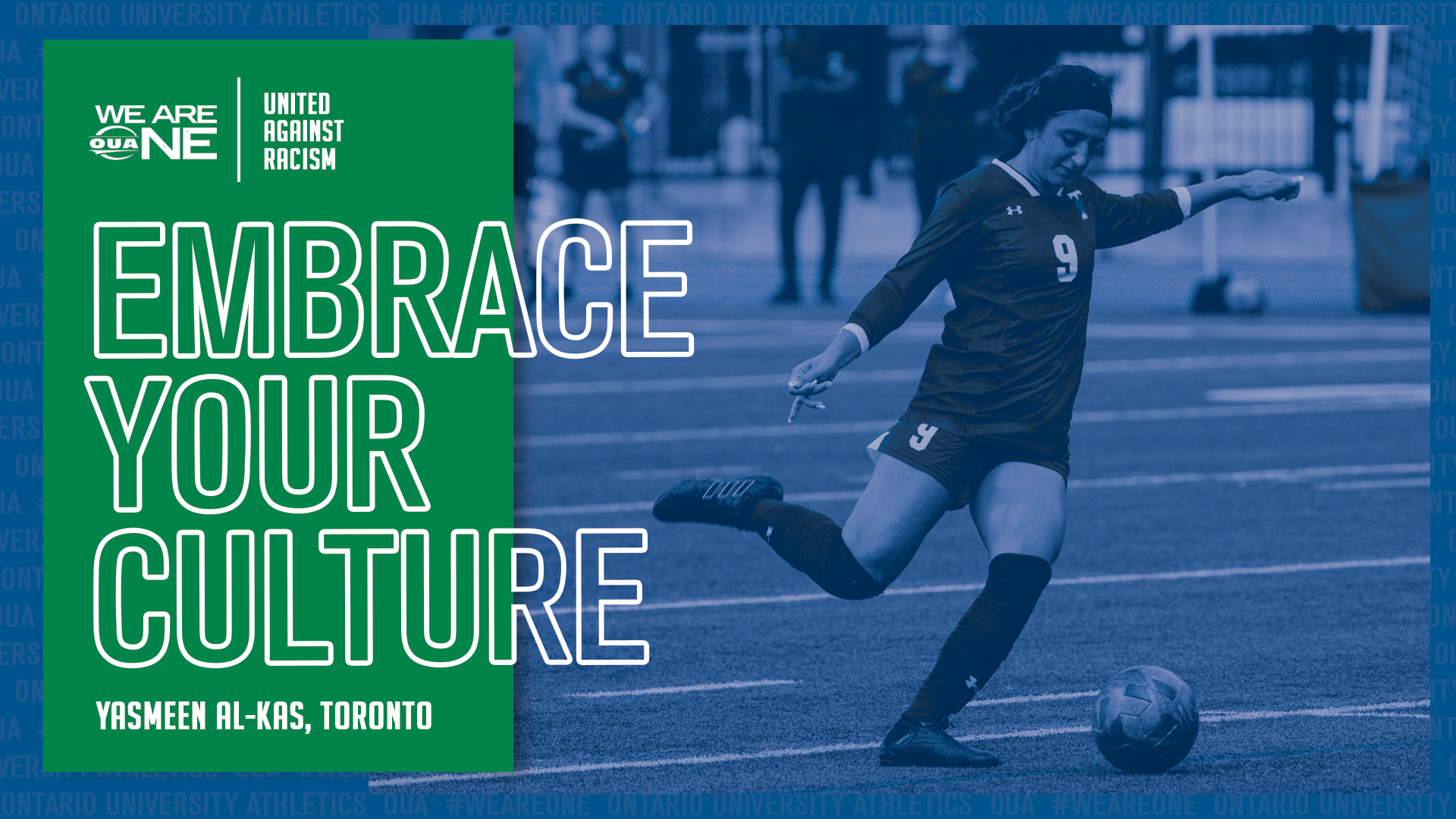
Embrace Your Culture | Yasmeen Al-Kas, Toronto Varsity Blues
In honour of the inaugural Ontario University Athletics (OUA) Anti-Racism Awareness Week, individuals from our member institutions shared insights into their own cultural upbringing, how they continue to celebrate their culture, and why they feel it is important to learn about and embrace cultures other than their own.
Please describe what your own cultural upbringing was like?
Growing up in a Lebanese household, my cultural upbringing was rich with love and joy. At home, I was immersed in Middle Eastern food, culture, and language, and was taught important values that have stayed with me to this day. My family, with its strong emphasis on family ties, was a constant presence in my life, and I spent much of my time with my cousins. Despite the warmth and love I experienced at home, my cultural background also presented challenges outside of it. Living in a predominantly white town, I often encountered difficulties with the food I ate, the language I spoke, and the stereotypes associated with my culture. Despite these challenges, I would not change my upbringing, as it has shaped who I am today.
How has your cultural upbringing influenced you throughout your life?
My cultural upbringing has played a significant role in shaping who I am today. It has been the foundation of my morals, values, and beliefs, and has greatly influenced my identity. Growing up in a certain culture has shaped the way I treat others, communicate, and handle certain situations. It has also been the driving force behind my work ethic and passions. Additionally, my cultural background has also given me a unique perspective on the world, and has provided me with a rich understanding of my heritage and tradition, which I am proud to carry with me through my life. It has also helped me to appreciate the diversity and richness of other cultures, and has made me more open-minded, compassionate and respectful towards others.
Are there ways in which you continue to celebrate your culture?
I remain deeply connected to my culture through various ways, such as the language I speak at home, the holidays I celebrate, the food I eat, and the family events I attend. By speaking Arabic at home, I am able to maintain my connection to the Middle Eastern Lebanese culture. Additionally, by eating traditional Lebanese food, I am able to share my cultural heritage with others, including friends from different backgrounds. Celebrating holidays and attending family events are also important ways for me to stay connected to my culture, and to pass on important customs and traditions to future generations. Furthermore, my cultural background has taught me to be proud of who I am and where I come from, and to embrace my heritage and identity. It also has given me a deep understanding of the importance of cultural diversity and inclusiveness, which I strive to promote in my everyday life.
Why do you feel it is important to embrace and celebrate your culture?
Embracing and celebrating my culture is vital to my overall well-being and self-awareness as it forms the foundation of my identity and pride. My culture provides me with a sense of belonging and connection with those who share the same background as me, and allows me to celebrate this shared heritage with them. Additionally, by embracing and celebrating my culture, I am able to preserve and pass it on to future generations, ensuring that the traditions and customs that have shaped me are not lost. Furthermore, by understanding and celebrating my culture, I gain a deeper understanding and appreciation of cultural diversity and the importance it brings to our society. It allows me to have a sense of understanding and empathy towards people from other cultures, and to respect and appreciate their heritage and traditions as well.
Why do you feel it is important for people to learn about cultures other than their own?
I believe that it is essential for people to learn about cultures other than their own in order to gain a deeper understanding and appreciation of the world around them. By learning about other cultures, individuals can better understand the unique challenges and struggles that come with being part of a certain culture and how it shapes one's identity and experiences. Additionally, by embracing and understanding other cultures, we can create a more inclusive and respectful environment for everyone. It promotes empathy, acceptance, and helps to break down stereotypes and prejudices. Furthermore, understanding different cultures allows us to appreciate the diversity of the world and to see things from different perspectives, which can lead to more meaningful and harmonious relationships, both personally and professionally. It is also important to note that cultural understanding and appreciation should not be limited to just learning about other cultures, but also actively engaging with people from different backgrounds, listening to their stories and experiences, and actively working to create an inclusive society.



































































































































































































